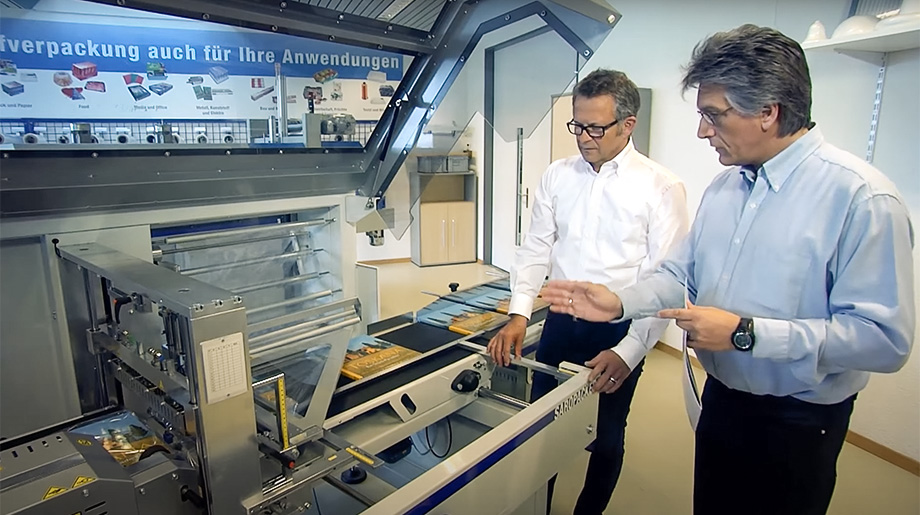Saropack and myclimate have enjoyed a strategic partnership in the area of sustainability since 2012. Saropack expanded its commitment to climate protection significantly within the framework of this partnership in January 2021. Now all Saropack locations are climate neutral. Saropack now also provides a climate protection contribution for all of its product and service offerings as a fixed component of its standard quotes. The climate protection contribution supports carbon offset projects, such as moor restoration in Switzerland and Germany. Together with its clients, Saropack hopes to take another step towards climate neutrality in this way.
Mr Stillhard, how has the reaction of your clients been to the new climate protection contribution, which is now automatically part of your quote?
Very positive! Of course the climate protection contribution has provoked a lot of discussion. But that is exactly what we set out to do. Even if clients do not make the contribution, we are able to elucidate the matter in most cases and raise awareness regarding climate protection. Furthermore, we are shaping our image. We have won praise and recognition across the board for our commitment to climate protection.
What are your options as a producer? How much climate protection do new packaging solutions involve?
There are many possibilities. CO2 offsetting is just one of them. According to our philosophy, only solutions that are already optimised are to be offset. Our SAROGREEN concept creates a clear framework in this matter:
- All film is recyclable – recycling is active climate protection
- Optimal solutions through personal consultation – this prevents rejects and reduces waste
- Solutions for film with reduced thickness – to save resources
- Film made of renewable resources – for example, ethylene from sugar cane
- Climate-neutral film – CO2 offsetting for active climate protection
To what extent is packaging already being recycled today? What is needed to give as much packaging as possible a second or third life?
Material recycling is key. The recyclability of a product should be part of every company’s product-mix strategy as a matter of principle. Today’s mechanical recycling has clear limits though. Yet post-consumer recycling and chemical recycling technology enable the continuous improvement of recycling and the circular use of materials.
We follow three strategies in the area of recycling:
- Product-mix strategy: All products must be recyclable. Declarations are also being improved. Clients should be able to see what kind of plastic they are using.
- New products with a PIR share (post-industrial recycling): PIR allows clean, in-house “waste” to be reused. We can guarantee traceability for food and medical applications here as well. We currently offer such products with a recycling share of approx. 30 per cent.
- Promotion of chemical recycling solutions: Products from chemical recycling are forward-looking. All plastics can be collected without sorting. The different types of plastic are separated by a chemical process, which results in clean base materials that can be used to manufacture plastics again. This forward-looking recycling option allows you to keep plastics in circulation and reduces CO2 emissions drastically.
Will we be able to dispense with plastic packaging altogether in the foreseeable future?
Calls to not use plastics are aimed in the wrong direction. It is clear that plastics and packaging should generally be avoided when they are not needed. Packaging that is not needed is waste! Where packaging brings added value, we must develop existing packaging and recycle these complex technical products in a sensible manner, keeping them in circulation.
A longer shelf life is decisive here. A fresh pizza that is not frozen goes bad in normal film in three to four days. A fresh pizza in film with an oxygen barrier can be sold for three weeks. The investment in the packaging is more sustainable than throwing the pizza out.
How high is the demand for sustainable packaging solutions?
Our clients are seeing a high demand for environmentally friendly packaging. They are under pressure but do not know the exact solutions that they should use to respond to this demand. This topic dominates most client discussions nowadays. The consultations take a lot of time. The provision of information is, however, part of our marketing strategy. We come up with more efficient and sustainable solutions alongside our clients.
The pressure is particularly high when it comes to packaging for consumer goods. In supermarkets, solutions have become fashionable that may look sustainable but are in effect less sustainable than the previous solutions. The pressure isn’t quite as high for industrial applications. The discussion is more objective and revolves around optimising and improving processes.
What influence does the ten-year partnership with myclimate have on the way you run your business?
The collaboration with myclimate is very important to us! We are not environmental engineers; we rely on myclimate’s expertise. In addition, it is important for our clients that we are able to go to their site with myclimate to present solutions, if necessary.
Saropack offsets the emissions from its packaging solutions by supporting myclimate projects to restore moors. Further information about the projects can be found here:
Renaturation of Swiss Upland Moors
Sustainability at Saropack:
Climate-neutral shrinkwrap, sustainable packaging solutions (saropack.eu)
